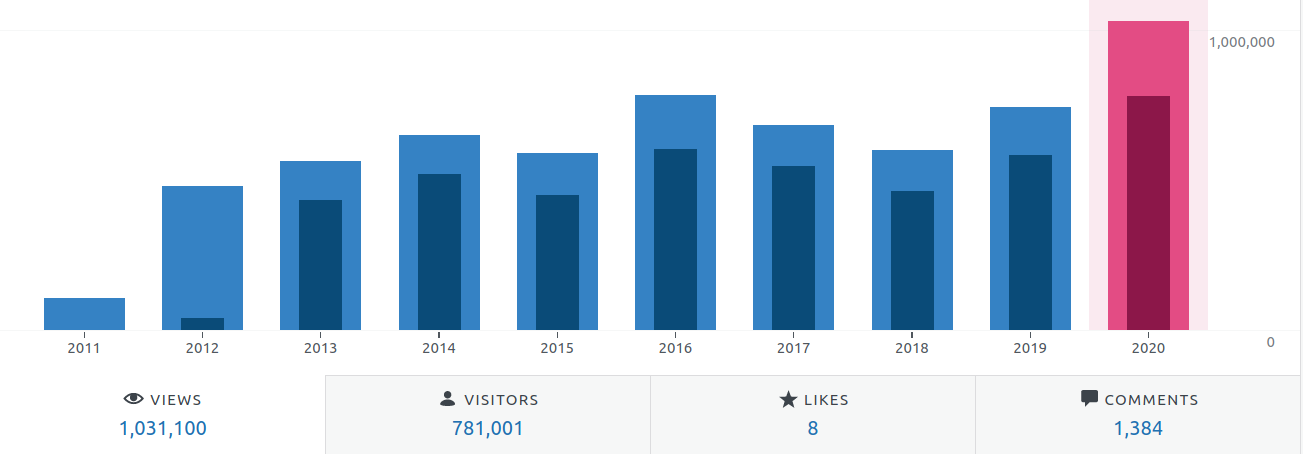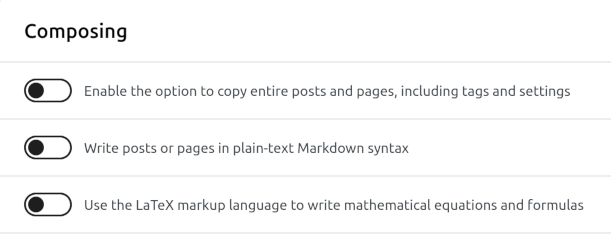
Because Ma.tt continues to burn all of the goodwill built up by WordPress, and JetPack have decided to charge a ridiculous sum for their statistics, I've decided to move to a new stats provider. But I don't want to lose all the statistics I've built up over the years. How do I download a day-by-day export of my JetPack stats? Luckily, there is an API for downloading all your JetPack stats! …
Continue reading →

A scrap of code which I hope helps you. Problem You installed the WordPress JetPack plugin and wrote all your blog posts in Markdown. Now you want to remove JetPack or replace it with a better Markdown parser. You turn off JetPack's "Write posts or pages in plain-text Markdown syntax". You click edit on a post and see the HTML version of your page. Where did the Markdown version go? …
Continue reading →

I like the JetPack related post functionality. But I wanted to customise it far beyond what the default code allows for. So here's how I went from this: To this: Documentation The complete documentation for related posts is pretty easy to follow. This is an adaptation of "Use Jetpack_RelatedPosts_Raw to build your own list of Related Posts". Remove the automatic placement You can turn…
Continue reading →

People can subscribe to receive my blog via email. This is managed by the JetPack plugin. I want to be able to display something like "Join 1,234 subscribers and receive updates via email". So, how do I get the subscriber count from the API? As documented in the JetPack HTTP API, it is possible to interact with JetPack programmatically. A good starting point is /wp-json/ - that will show you…
Continue reading →

Previously, I've written about using Footnotes in WordPress Markdown. A reader notified me that the footnotes weren't very accessible. This blog post describes the problem and proposes a solution. The Problem Using WordPress's JetPack, markdown footnotes are rendered as: Some text <sup id="fnref-1234-1"><a href="#fn-1234-1" class="jetpack-footnote">1</a></sup> ... <li id="fn-1234-1">The…
Continue reading →




